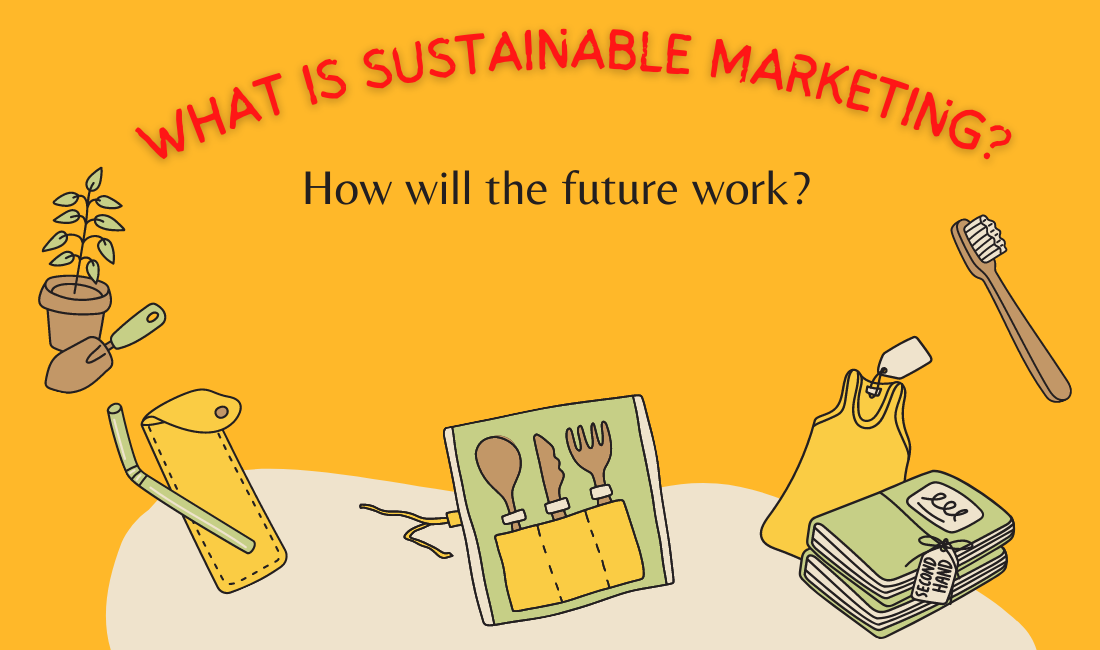Sustainable marketing is a term that refers to marketing that does not damage the environment or erode social and economic justice. It has become increasingly important to businesses, particularly in the private sector, as they face global sustainability challenges. This article looks at some of the ways private businesses are working toward a more sustainable future.
Sustainable marketing is a movement that aims to create products and services that can be used over time, without damaging the environment or human health. In this article, we’ll take a look at how private businesses are working to become more sustainable, and what you can do to help them along the way!
Sustainable Marketing Concepts
What is sustainable marketing?
A sustainable marketing plan is designed to allow businesses to continue to function while minimizing environmental impacts. There are a few key components to a sustainable marketing plan, including creating a baseline assessment of your company’s environmental impact, creating a business model that aligns with your company’s sustainability goals, and implementing strategies and tactics to improve your company’s environmental performance.
Private business sector leaders are beginning to recognize the importance of sustainability and are taking steps to improve their environmental performance. In 2013, the private sector accounted for over 50% of global greenhouse gas emissions. It is important for businesses of all sizes to focus on sustainability in order to have a positive impact on the environment.
There are a number of concepts and strategies that can be used in order to create a sustainable marketing plan.
Some common strategies include:
-Creating a baseline assessment of your company’s environmental impact
-Developing a business model that aligns with your company’s sustainability goals
-Implementing strategies and tactics to improve your company’s environmental performance
Private Sector Efforts Toward Sustainability
The private sector is making strides to become more sustainable, as businesses realize the importance of creating environmentally friendly practices. A number of private-sector organizations have developed sustainability programs in recent years, as they realize the need to protect both their own resources and the environment.
Some of the most forward-thinking private-sector organizations are working to reduce their environmental impact by developing innovative ways to produce and consume goods. For example, Apple has developed a closed-loop recycling program for its products, which reduces the amount of waste produced by the company. Other companies are working to improve energy efficiency and find new ways to produce materials without damaging the environment.
The private sector is starting to take a lead in developing sustainable practices, as businesses realize the importance of protecting both their own resources and the environment. The efforts of private-sector organizations are helping to move us closer to a more sustainable future.

What is sustainable marketing?
The private sector is working to create a more sustainable future by embracing sustainable marketing practices. Sustainable marketing encompasses a number of concepts, including environmental, social, and economic sustainability.
Here are three key principles of sustainable marketing:
1. Create a positive environment for customers and employees:
Private businesses have an opportunity to improve the environment in which they operate through their marketing practices. They can help create a positive customer experience by using sustainable materials and reducing energy consumption. They can also employ environmentally friendly practices such as waste reduction and recycling. In addition, they can work to improve the working conditions for their employees. For example, they can provide health insurance and safe working conditions.
2. Promote social responsibility:
Businesses can promote social responsibility by taking actions such as donating money or products to charity or contributing to environmental causes. They can also promote sustainable practices through public relations campaigns or employee education programs.
3. Invest in research and development:
Businesses should invest in research and development to develop new methods of using resources sustainably. This will help them find new ways to reduce energy consumption, reduce waste, and recycle materials.
Benefits of sustainable marketing
Sustainability is the practice of meeting the needs of people and the environment in a way that does not damage either. It has many benefits for businesses, including increased customer loyalty, lower environmental impact, and improved employee morale.
There are many ways to go about achieving sustainable marketing. The private sector is catching on to the benefits and is working toward a more sustainable future.
Here are some of the most common methods:
1. REDucing Environmental Impacts: Businesses can reduce their environmental impacts by using less energy, reducing waste output, and using more environmentally friendly materials.
2. Promoting Corporate Social Responsibility (CSR): CSR encompasses a wide range of activities designed to improve the well-being of people outside of business as well as within it. These activities can include sponsoring charities or education programs, providing affordable housing, or creating green workplace policies.
3. Supporting Sustainable Agriculture: Sustainable agriculture practices aim to improve both production and environmental impact by improving soil health, managing water resources sustainably, and reducing deforestation and other forms of land destruction.
Creating a sustainable marketing plan
In order to create a sustainable marketing plan, you first need to answer some key questions. What is your company’s sustainability goal? How will you measure success? Do you have a marketing strategy in place to support your sustainability goals? If not, what steps do you need to take to develop one?
Once you have answered these questions, you can begin to create a sustainable marketing plan. One important step is to assess your current marketing practices and identify any areas where they could be improved. Next, you need to identify the best ways to reach your target market and promote your products or services in a sustainable way. Finally, you need to track and report your progress so that you can stay on track and make adjustments as necessary.
By following these steps, you can create a sustainable marketing plan that supports your company’s sustainability goals.